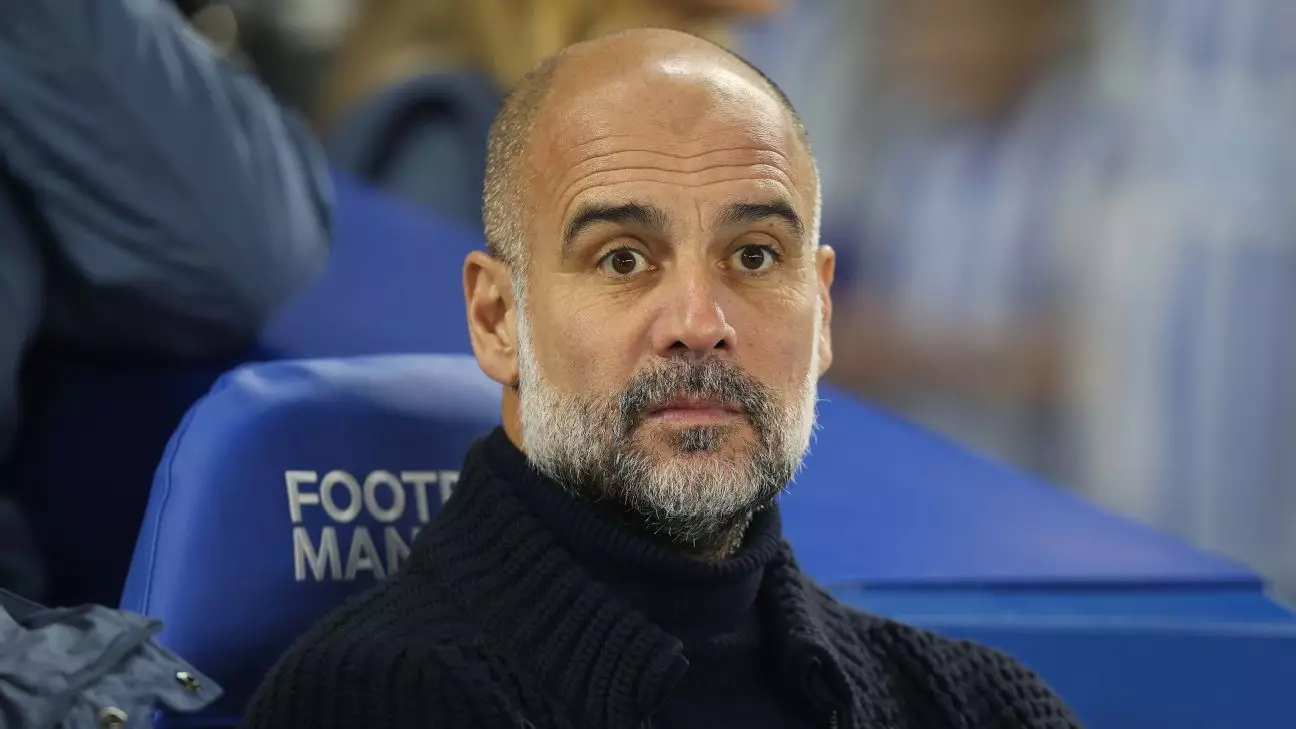Recent developments at Manchester City depict a threshold of transformation. The departures of Omar Berrada to Manchester United and Txiki Begiristain, who will step down at the end of the season, signify a monumental shift in the club’s operational dynamics. These figures have been integral to the team’s success, ushering them into an era characterized by unparalleled achievements, both domestically and across Europe. Now, the spotlight shifts uncomfortably onto the future of two more vital figures: Ferran Soriano and Pep Guardiola, whose own continues to dangle in uncertainty.
The synergy formed between Berrada, Begiristain, Soriano, and Guardiola has established Manchester City as a formidable force in football, transforming them into six-time English champions within the last seven seasons. The escalation of speculation surrounding Guardiola’s potential departure brings about questions of continuity: how will the club navigate change without one of the best managers in the world?
As turmoil looms over City, the on-field performance has faltered spectacularly, resulting in four consecutive losses—a feat unheard of in nearly two decades. Notably, injuries, particularly Rodri’s, have been crippling to City’s structure, yet the brittle form hints at deeper issues. Guardiola has stated he remains uncertain about whether he will continue after his contract expires at the end of the season, effectively throwing the club into a state of flux as the January transfer window approaches.
It is critical to understand that the tension surrounding Guardiola’s future inevitably affects the team morale and focus, echoing throughout the locker room. City’s board claims they respect Guardiola’s journey and achievements, and they are keen to avoid adding strain to his decision-making process. They understand that his commitment levels directly correlate with the club’s aspirations for success in domestic and European competitions.
Despite their current struggles, Manchester City executives are reportedly determined to piece together contingency plans should Guardiola decide to leave. Names like Xabi Alonso have emerged as plausible successors after exemplary performances at Bayer Leverkusen, a promising prospect mirroring the upward trajectory City desires. Engaging in careful recruitment planning now may safeguard the club against future instability.
Interestingly, Guardiola is expected to announce his decision during the season’s break, a strategic point allowing the club to manage transitions more effectively. Historically, he has signed extensions in November, likely to preempt distractions as they seek silverware. Yet, with growing rumors and continual questions surrounding his future, there lies an undeniable need for clarity sooner rather than later.
Guardiola’s tenure is dotted with spectacular triumphs—15 major trophies within eight seasons, including a historic treble. However, with the Champions League now in the cabinet, his motivational reservoirs may need replenishment. The pressing question looms: what more can he achieve? His legacy, already monumental, teeters on the brink of endless debates among supporters and pundits, especially considering the looming ambitions that lie ahead.
As City navigates this precarious moment, they must strike a balance between advancing the squad’s development and ensuring that current players feel anchored despite the inevitable changes. Notably, the squad’s aging components must be addressed, with several stars over the age of 30 and several vital talents contemplating their futures. Guardiola himself has hinted at feeling connected to these departures, indicating the emotional impact of change on his decision-making.
Whether Guardiola remains or departs speaks volumes to the identity of Manchester City moving forward. Critical contracts run out soon, and players like Kevin De Bruyne, who symbolizes the club’s recent success, must have their futures navigated thoughtfully. As the dust settles around managerial changes, City’s operational strategy will dictate the club’s trajectory.
The ramifications of transitioning ownership and management at City extend far beyond the pitch. With the Premier League looming over the club with its ongoing investigations, Guardiola’s leadership may be more crucial than ever in stabilizing the club and asserting their commitment to sustaining excellence.
Manchester City stands at a crossroads—its foundations tested, its future unwritten. Change is imminent, whether it unfolds in the immediate or over a series of seasons. Fans, players, and management alike will watch closely as critical decisions loom ahead. In the world of club football, embracing the ebb and flow of change is essential, but how well Manchester City adapts may define their next chapter in football history. Whatever the outcome, it is clear: this is merely the beginning of a new era at the Etihad Stadium, and the footballing world will be watching closely.

